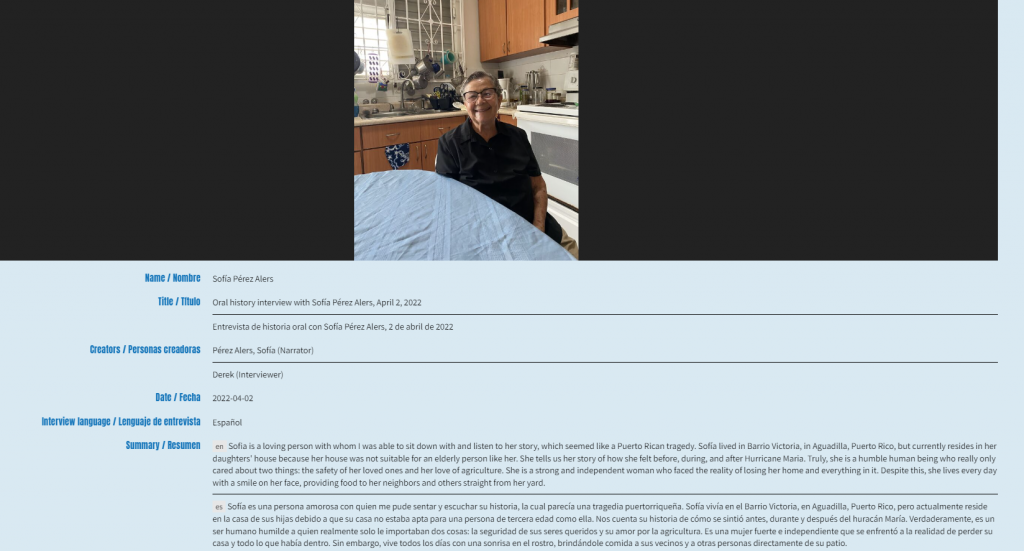Oral history interviews collected by the OHL are deposited in Scholar@UPRM, which is the institutional repository of the University of Puerto Rico at Mayaguez. We believe that storytellers are the owners of their life stories and therefore practice a post-custodial model of archiving. For more information, please see the OHL Ethics Statement.
A subset of these oral histories ia available through the OHL’s Omeka site.
Oral histories from the Mi María: Surviving the Storm: Voices from Puerto Rico book project are now archived with Columbia University Libraries. The Voice of Witness Book Series published Mi María in 2021 (Haymarket Books). The narratives in this book were shaped from oral history interviews, which are now preserved in Columbia University Libraries’ Mi María oral history collection, 2018-2020.
